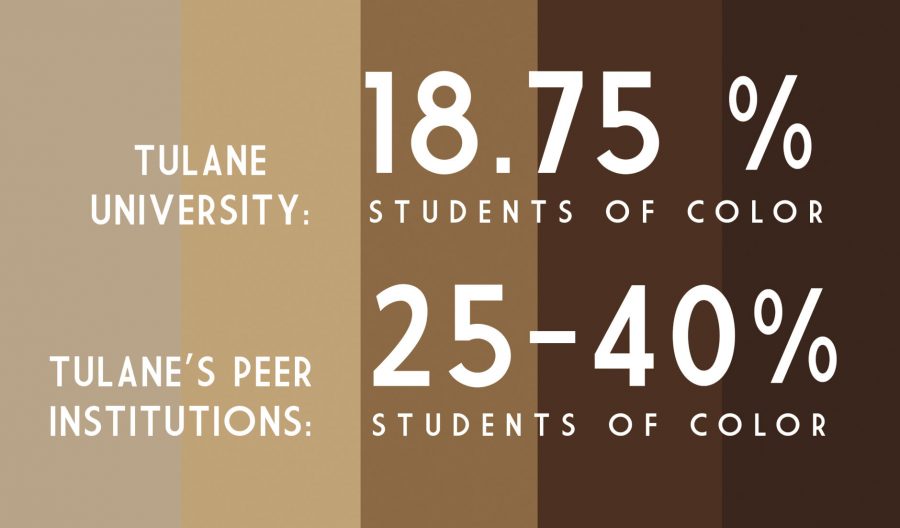A year in race: the Commission on Race and Tulane Values works to fulfill commitments
A year ago, the Tulane Black Student Union and Students Organizing Against Racism hosted a Call for Unity that ignited both immediate and incremental change on campus.
The Presidential Commission on Race and Tulane Values was formed to address the demands presented by tBSU. This commission aims to create reforms and strategies that will make Tulane a more racially diverse, inclusive community and promote values of respect and equality.
The commission, which has been broken up into committees, specifically focuses on issues of campus climate, diversity, academics and admissions.
“As the committees work they can immediately bring their ideas to Mike Cunningham and myself and we do our best to implement things as quickly as possible,” co-chair Tania Tetlow said. “Some things are really great ideas that just require willpower to get them done and some things are massive fundraising goals.”
The Tulane Admissions Office has made progress diversifying its staff, which now includes five people of color. Satyajit Dattagupta, vice president of enrollment management and member of the commission, would like to make future classes more diverse.
“One of my biggest goals is to bring in a class that’s always as exciting, intelligent, bright, academically motivated but also diverse because I think we miss an opportunity by not providing an atmosphere that is like the real world,” Dattagupta said.
Dattagupta believes progress will be incremental, and his office has already addressed several tBSU’s demands. A three-tier approach will work to recruit a more diverse class, make Tulane more accessible financially and retain students by creating a more inclusive and supportive environment.
Admissions designed programs specifically for students of color to visit campus. The fall program includes application workshops and opportunities to meet student leaders. Some students will be invited back to campus next semester to interview for additional scholarships.
The commission is establishing an Office for Academic Equity to help retain students of color. Students can also find support at the Office of Multicultural Affairs, for which the commission is attempting to find a larger space.
Most of Tulane’s peer institutions have between 25 and 40 percent students of color, according to Dattagupta. Tulane’s student body is currently 18.75 percent students of color, a 1.2 percent increase from the 2015-16 academic year.
The commission uses feedback from students to assess campus climate and to find more effective ways to report and respond to racism.
“That’s the work that the student commission members try to tackle with support from the commission itself,” Alex Williams, an undergraduate member of the commission and one of the primary organizers of the Call for Unity, said. “Because anti-racism in and of itself isn’t actionable or able to be legislated, administrators listen to our concerns and try to work to implement policy, mostly by way of increasing penalties for students who commit incidents of bias or hate.”
While Williams said she feels her voice is heard on the commission, she does not always feel her voice is taken into account during decision making processes.
“Administrators have definitely communicated that they understand our concerns,” Williams said. “They just haven’t done much to change how the process works.”
Junior commission member Abi Mbaye said the commission is working on being more accessible because many students are unware of their existence.
“It’s hard a lot of times for people to get their concerns heard because many students don’t know about the commissions, it is not something the university advertises to the student body,” Mbaye said.
Mbaye says she has seen the effort Tulane has put into recruiting more students of color and hopes that retainment efforts are made a priority.
“A basic principle of organizations is that it’s very easy to change process, it’s easy to change structure, but it takes time to change culture and it happens through action,” Dattagupta said. “I do believe I’m seeing winds of change but we have to back that up with real results.”
Your donation will support the student journalists of Tulane University. Your contribution will allow us to purchase equipment and cover our annual website hosting costs.




